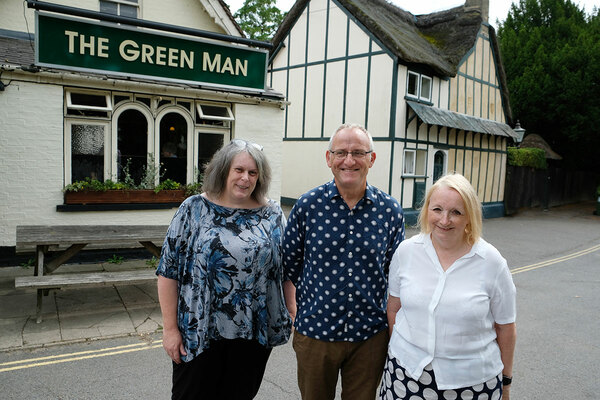You are viewing 1 of your 1 free articles
‘Social housing’ is tarnished as a term, so let’s avoid the labels
The sector must find a new vocabulary to talk about its housing more positively, argues Sebert Cox
Residents in social housing can often feel they are portrayed differently to those in the private sector – and that is rightly a hot topic of debate in our sector.
The Social Housing Green Paper has kept the focus on stigma. And it is true that society should do more to ensure that everyone in every home is treated with dignity and respect, and does not suffer prejudice based on the type of home they live in, their income or their circumstances.
In a perfect world, people wouldn’t rush to judgement.
But unfortunately that is the reality of the world we live in today, and the term ‘social housing’ has become tarnished.
Our sector must avoid being part of the problem in the way that we talk about our work.
Too often, social housing has become a byword for ‘last resort’ housing, or for supposed reliance on benefits, or a lack of aspiration.
If you live in a block of apartments or flats in the private sector, there is no label attached to you.
If you live in a block run by a council or housing association, it’s talked about – sometimes dismissively – as ‘social housing’.
The implication is that people living in social housing are not part of the mainstream, that they’re somehow on the margins of society.
Some will argue we should devote our energies to changing how people perceive ‘social housing’ and make the argument for the value we know it brings to our society.
Many have contributed excellent ideas and created some shift in this arena, including the Benefit to Society campaign, to change the tone and language used in communications with customers.
This involves a move to be more empathetic and to avoid the patronising tone customers sometimes describe when receiving formal tenancy letters.
“Let’s find a new way to talk about our work, rather than always sticking with the ‘social housing’ label which can be seen in a negative light”
But I say that as a sector we need to go further than that – it’s not just about people’s behaviour and attitudes, it’s about the language we use to describe the homes we provide.
Let’s find a new way to talk about our work, rather than always sticking with the ‘social housing’ label which can be seen in a negative light.
In other aspects of life, labelling carries a certain degree of ‘does what it says on the tin’, and maybe we can learn from that.
We need to have some serious conversations within the sector about another way to talk about our homes without a negative connotation for the wider community.
Once we have done that, and the sector has a more positive vocabulary to use about the great homes and services we provide, we will be in a much better position to talk to government and other stakeholders about stigma.
What we are talking about is simply housing. We don’t label those who are fortunate enough to have bought their own home, or benefit from shared ownership. So why do we do that with tenants?
Let’s get rid of the labelling, or we’ll be the ones contributing to the stigma we profess to dislike.
Sebert Cox, chair, Karbon Homes











